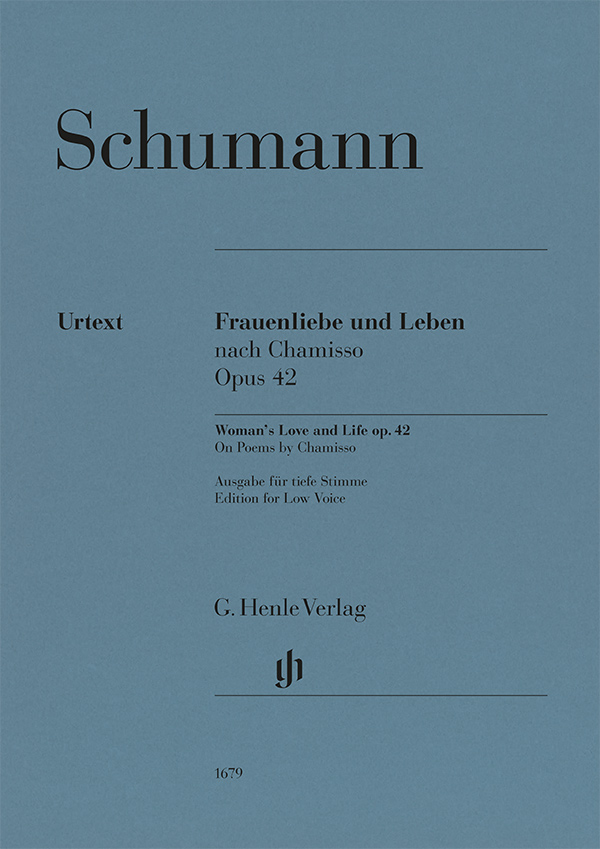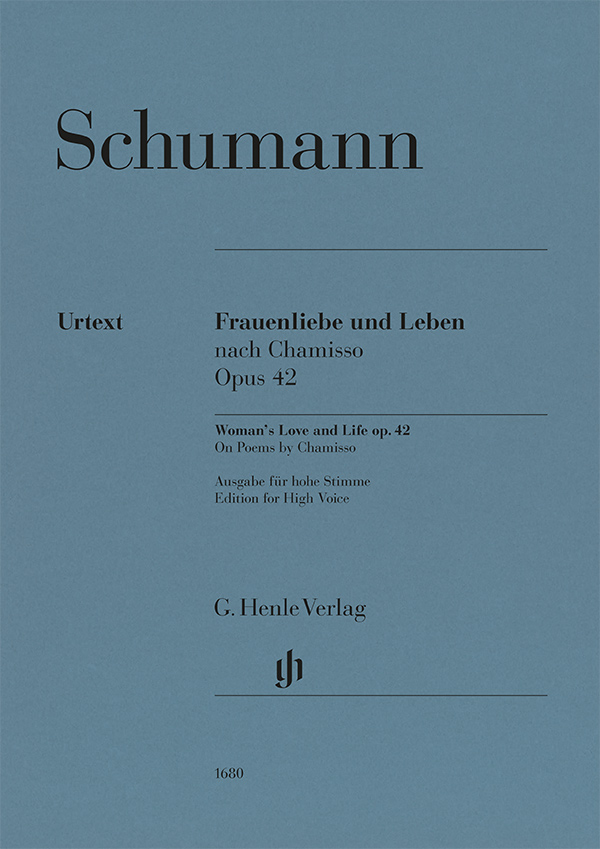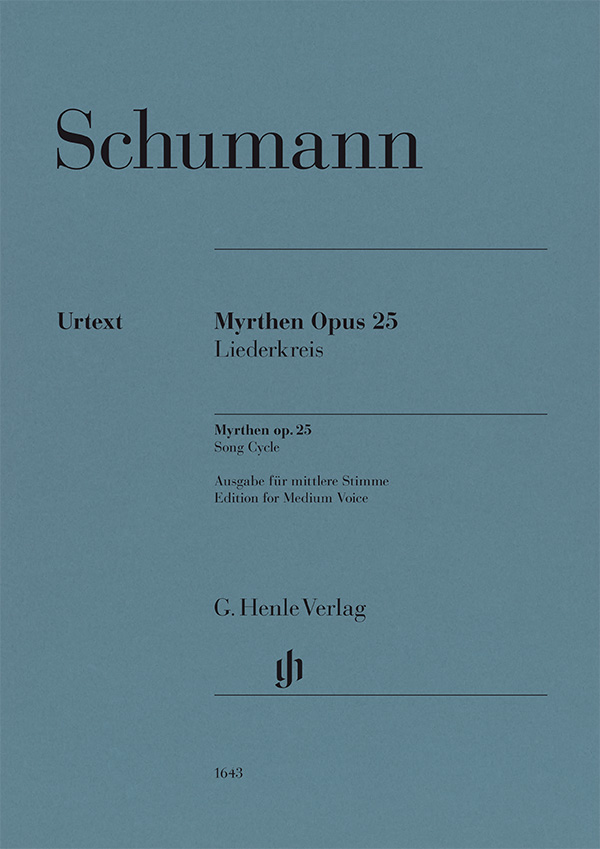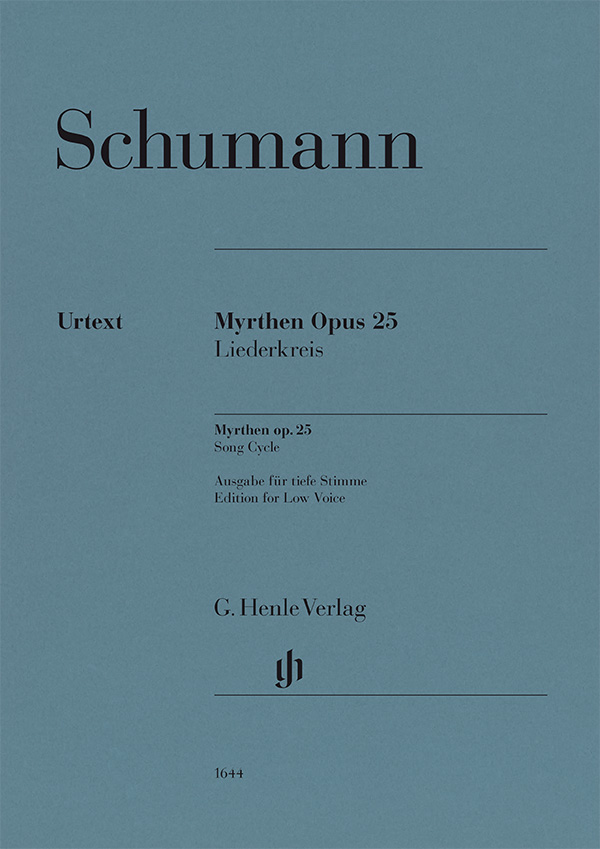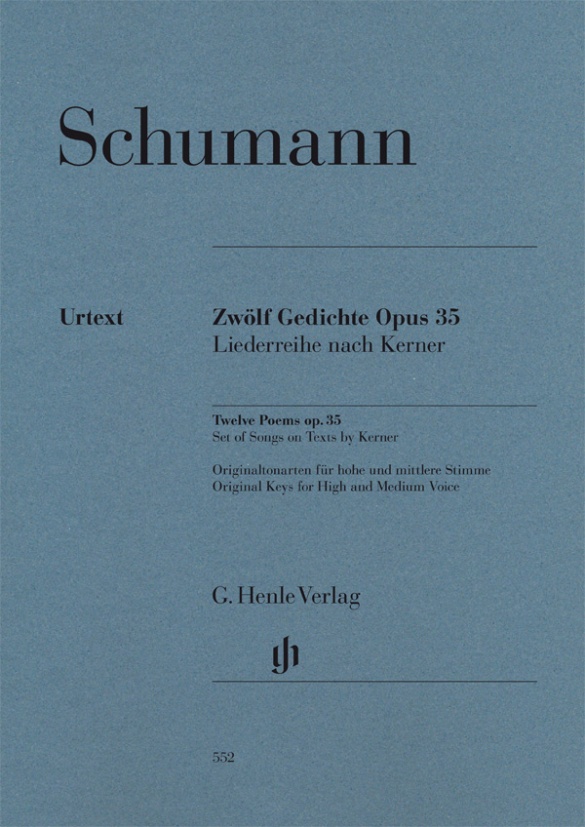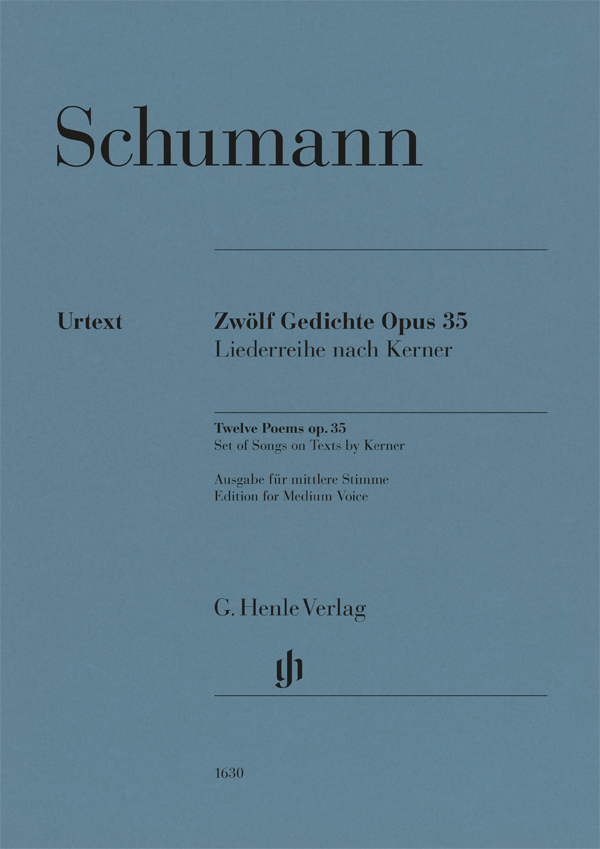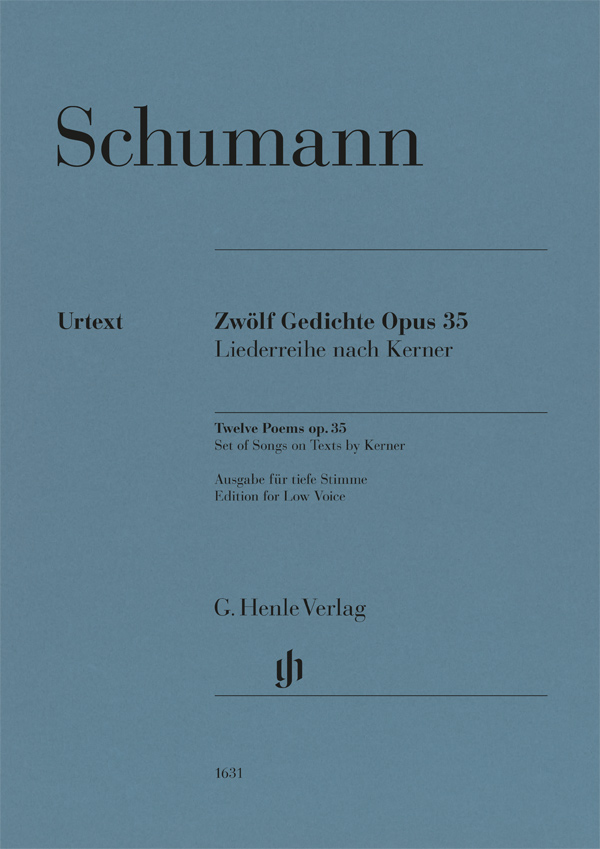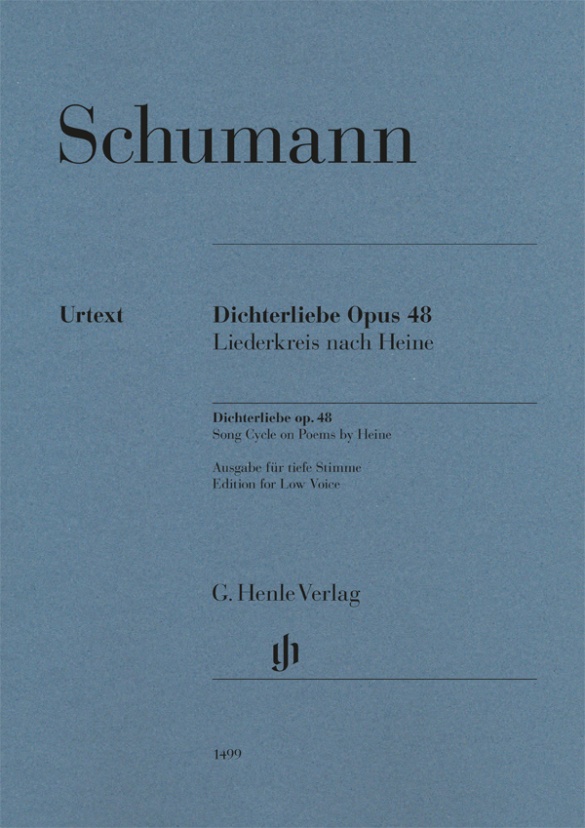

Robert Schumann
Dichterliebe op. 48
The ups and downs of disappointed love: who could fail to sympathize with the feelings that Schumann immortalized in his song cycle Dichterliebe after Heine? The pieces range from hopeful anticipation („Im wunderschönen Monat Mai“) to solitary grief („Und wüssten’s die Blumen, die kleinen“) and bitter sarcasm („Die alten bösen Lieder“). Schumann knew what he was writing about: the cycle originated in the year of his marriage to Clara Wieck, an event that took place only after years of struggle. The tried-and-tested Henle Urtext edition by the Schumann specialist Kazuko Ozawa is now also available for singers with low voice: in close collaboration with the experienced pianist and renowned Lied accompanist Gerold Huber, we have adapted the whole cycle, including the four songs of the appendix, for medium and low voices.
Content/Details
About the Composer
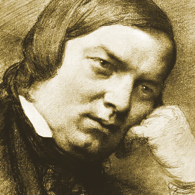
Robert Schumann
Connected with his oeuvre is the term he coined, Poetic Music, with which he strove for a fusion of literature and music, a paradigm particularly seen in his lyric piano pieces prior to 1839. Thereafter he devoted himself to other genres (song, symphony, chamber music, among others).
| 1810 | Born in Zwickau on June 8, the son of a bookdealer. |
| from 1828 | Studies law in Leipzig, piano with Friedrich Wieck. Decision to pursue a career in music. |
| 1830–39 | He exclusively composes piano works, mostly cycles, including “Papillons,” Op. 2 (1829–32); “Carnaval,” Op 9 (1834/35); “Davidsbündlertänze,” Op. 6 (1837); “Kinderszenen” (“Scenes from Childhood”), Op. 15 (1837/38); “Kreisleriana,” Op. 16 (1838); “Noveletten,” Op. 21 (1838). |
| 1832 | A paralysis of a finger in his right hand makes a career as a pianist impossible. Founding in 1833 of the fantasy brotherhood the “Davidsbund” (“League of David”). |
| 1835–44 | Editor of the Neue Zeitschrift für Musik (New Journal of Music). |
| 1840 | Marriage to Clara Wieck; 138 songs, including the Eichendorff Liederkreis, Op. 39; the song cycle “Dichterliebe,” Op. 48 |
| 1841 | Symphony No. 1 in B-flat major (“Spring” Symphony), Op. 38, and Symphony No. 4 in D minor, Op. 120. |
| 1842 | Three string quartets, Op. 41; further chamber music. |
| 1843 | Teacher of composition at the Leipzig Conservatory. Oratorio “Paradise and the Peri,” Op. 50. |
| 1845 | He settles in Dresden. Journey to Russia. |
| 1845 | Piano Concerto in A minor, Op. 54, Symphony No. 2 in C major, Op. 61. |
| 1850 | City music director in Düsseldorf. Premiere in Leipzig of his opera “Genoveva,” Op. 81. Symphony in E-flat major (“Rhenish”), Op. 97; Cello Concerto in A minor, Op. 129. |
| 1853 | Beginning of his friendship with Brahms. Completion of the Scenes from Faust. Violin Concerto in D minor for Joseph Joachim. |
| 1854 | Suicide attempt and admission to the psychiatric institution in Endenich, near Bonn. |
| 1856 | Death in Endenich on July 29. |
About the Authors

Kazuko Ozawa (Editor)
Kazuko Ozawa, born in 1954 in Mishima, Japan, studied at the Tokyo University of the Arts between 1973 and 1979, doing her MA on Schumann’s Scenes from Faust in the Musicology Department. From 1979 onwards she continued her studies at the University of Bonn, earning her doctorate with a thesis entitled “Quellenstudien zu Robert Schumanns Liedern nach Adelbert von Chamisso”.
She works as a freelance musicologist and is an external editor for the New Robert Schumann Complete Edition.
Product Safety Informations (GPSR)

G. Henle Verlag
Here you can find the information about the manufacturer of the product.G. Henle Verlag e.K.
Forstenrieder Allee 122
81476 München
Germany
info@henle.de
www.henle.com
Die Ausgabe ist – wie vom Henle-Verlag gewohnt – solide und im feinen Notenbild gefertigt. Mit Kazuo Ozawas Neuausgabe der Dichterliebe für mittlere und tiefe Stimme ist auch den Sängern aus diesem Stimmbereich eine praktikable Handhabe zur vertieften Interpretation dieses berühmten Zyklus’ geboten.
Robert-Schumann-Gesellschaft e.V., Correspondenz, 2022推荐
autogenerated_cross_selling
本书目其他版本
本书目其他版本


